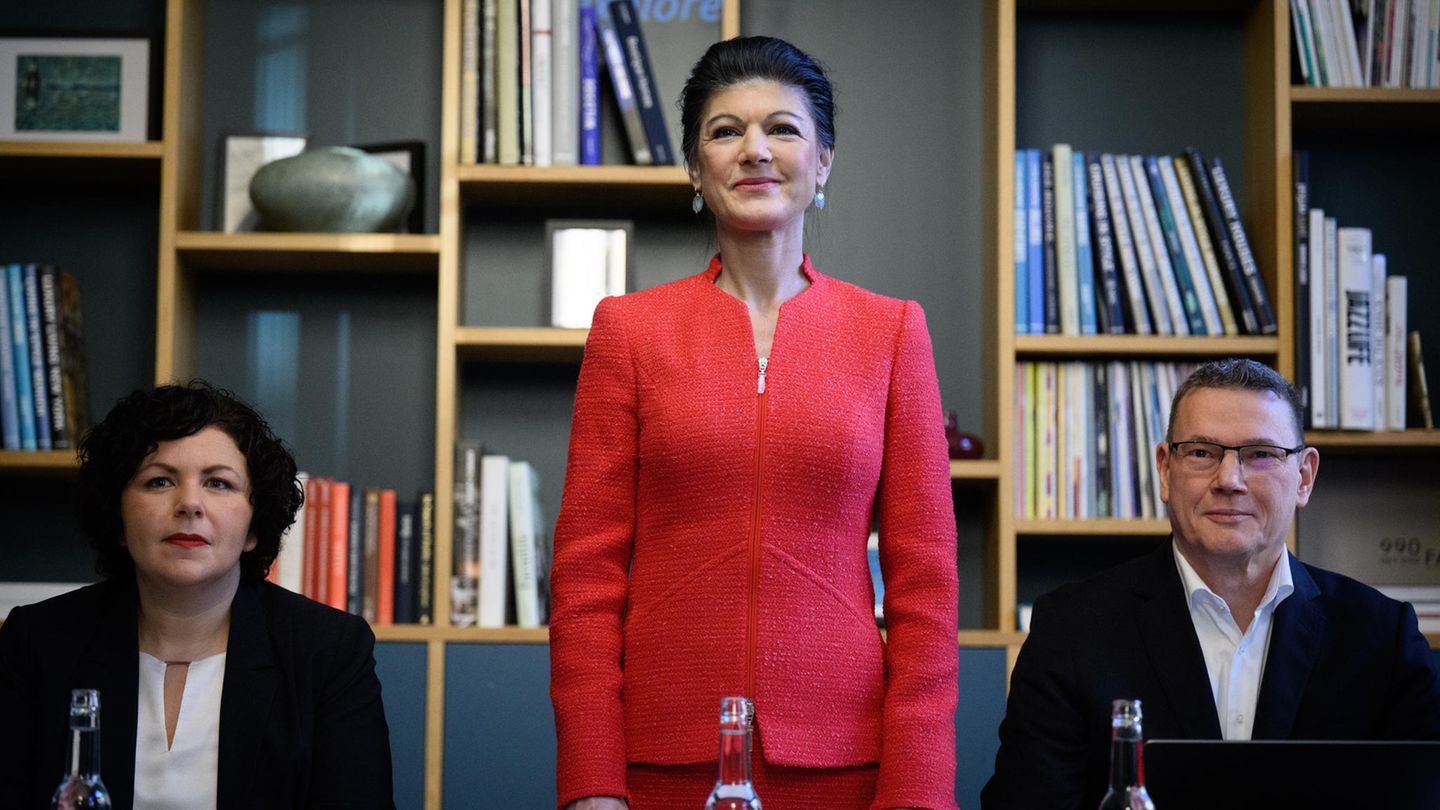As an entrepreneur and consultant, Oliver Skopec is an important figure in the Berlin start-up scene. He is now joining the Sahra Wagenknecht BSW alliance. Why?
By Niklas Wirminghaus
This article is adapted from the business magazine Capital and is available here for ten days. Afterwards it will only be available to read at again. Capital belongs like that star to RTL Germany.
Mr. Skopec, you are a multiple founder and now also advise companies. What are you doing at BSW?
There are a number of reasons for the party. Personally, I just have the feeling that Sahra Wagenknecht, as a politician, has her heart in the right place. When I was at university, I saw her as a macroeconomist, with a good mix of analytical skills and empathy and a sense of justice.
Wait, you perceived her as a macroeconomist?
Yes, and you could also observe that she didn’t simply give in to the macroeconomic thinking that was inherent in individual schools, but was also a challenger here, someone who constructively and critically questioned the status quo.
Ms. Wagenknecht’s ex-colleagues from the left-wing faction in the Bundestag would probably not think of the description “constructive” for her.
But I do. I’m not a politically experienced guy, but I do believe that clattering is part of the business, especially in an opposition role. Working constructively requires the willingness to question things and understand those affected. In a start-up, this would be called user research: understanding which problems affect whom.
What is the main problem that the BSW addresses?
Like many people in Germany, I am very worried about the supposed shift to the right we are experiencing.
Why supposedly?
I’m pretty sure that the popularity that the AfD is experiencing is not rooted in the fact that a large part of our society suddenly thinks like the AfD’s leadership. People no longer see themselves represented elsewhere and feel frustration and a lack of alternatives. The BSW is a consistently left-wing counter-proposal, an effective way to counteract the shift to the right. And if it were just that, it would be worth any commitment.
What content would you use to undermine the AfD?
From my perspective as an entrepreneur and founder, I would say that what we care about is broad social stability, justice and the feeling of not being left behind and lost. By the way, this is also essential in order to be able to innovate and start a business. Starting a business in Germany is a very risky undertaking, as you often have to put your own existence or even that of your family at risk. That’s intimidating.
© Jens Ahner
Oliver Skopec, born in 1985, has been active in the German digital economy for a long time. In 2007 he was involved in setting up StudentVZ and later founded one of the first peer-to-peer car sharing services. Today he works as an entrepreneur in the mobility and logistics sector and also advises other companies on setting up digital business models.
But is there really a connection? The statistics show that people are happy to stay in their jobs when they are doing well economically. Start-up rates tend to increase in times of crisis.
I think this can be attributed to some personal lack of alternatives that arise in times of crisis. Basically, starting a business in Germany is more unattractive than in almost any other place. This may be due to the partly secure white-collar jobs – but certainly also due to the bureaucratic obligations and the personal liability risks that we expect of young founders. Much of this would not be necessary at all and could only start after two or three years. And start-ups should be better supported.
How come?
There are already good funding programs, but the application and selection processes are often very lengthy and tough. I think we don’t trust the recipients enough. At the same time, funding and venture capital too often only go to people from certain better-off social backgrounds.
So promote more specifically? But that would mean additional rules, more bureaucracy…
No, we should support more broadly, even at the risk of giving money to founders who perhaps didn’t really need it. But we should have that much confidence – and it would be a real step towards de-bureaucratization.
Promoting founders, reducing bureaucracy, even the fight against the AfD – the Greens, SPD, FDP and the Union have been taking all of this up their sleeves for years. What do you really want to do differently?
The established, larger parties have lost trust in so many places and lack credibility. And they carry a lot of baggage with them, they have unfinished business and existing favors. Another start-up analogy: If I have a great idea, I’m more likely to implement it in a young company than in a large corporation because I have much greater leverage and can make a difference.
But for what content?
I grew up when there was still an absolute promise of advancement; today, young families in particular have to ask themselves whether they can afford two vacations a year. If you walk through a park in Berlin, there will be venerable pensioners out and about who count collecting deposit bottles as a walk because they otherwise don’t have enough to live on. The fact that we don’t just ignore anyone is actually primarily a question of good politics and good organization. Because Germany is still doing well enough overall: gigantic assets grow every year and we are discussing immense spending on military resources. I’m not talking about bullying succession in the middle class, but we need a solution to inheritance tax. And we need to tax Big Tech better.
And this better social network would also help against the AfD? Isn’t it their tough stance on refugee and immigration policy that attracts voters?
Almost all parties are now taking a critical look at the issue. For many people it is noticeable that integration work has gone poorly since 2015, also because there was a lack of funds for it. But it’s not really deep-seated resentment towards migrants that drives people to the AfD, but simply their own concerns. What is needed is a far-sighted plan instead of constantly just reacting.
However, a federal government often has little choice but to react to changing world situations – this also applies to the increasing defense spending, which you have already mentioned and which is due to Russia’s incursion into Ukraine.
To be clear: I am not someone who subscribes to the naive idea that we can just negotiate with the Kremlin. But I do think that one can question the extent, the length and the supposed lack of alternatives with which we are involved militarily. This war costs human lives every day and that must be avoided at all costs. But I’m certainly not an expert in international relations, that’s my own personal opinion.
When you recently announced your involvement in BSW on Linkedin, there were very critical reactions precisely because of your stance towards Russia. What other feedback have you received?
Very different ones, actually. Not surprisingly, the convinced turbo-capitalists from the big VC funds asked me: For God’s sake, what’s going on? Conversely, I received very curious, positive feedback from a surprising number of founders: It’s great that you’re doing that. And I hope that maybe a few more people will feel encouraged to get involved – no matter what level, partisan or non-partisan.
Have you ever been politically active in the past?
Not since school days. Over the past few years I have always sympathized with a wide variety of major parties and there are still many overlaps with other parties today. In the end, it was the BSW’s view of humanity and its pragmatic and solution-oriented attitude that convinced me.
Do you have any ambitions for a political career?
No, not at the moment. I will be involved in the Brandenburg regional association, where I am at home with my children.
Source: Stern




